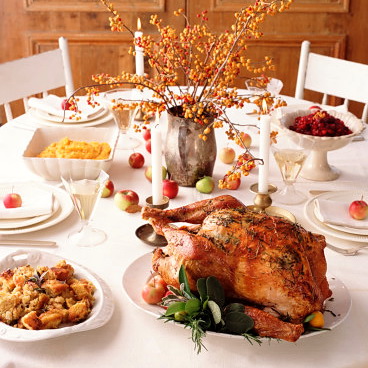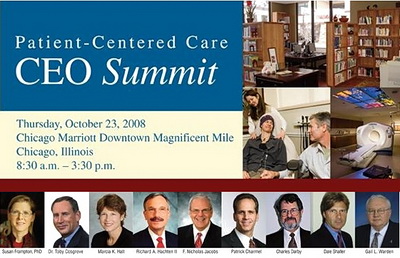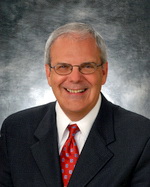 A few weeks ago, I mentioned that I was in Santa Fe, NM for an ACHE educational training course. Since then, I’ve been thinking a lot about some of the things that were said there by Master Instructor, Dr. Tom Atchison, Ed.D. (a/k/a, Yoda), the President and founder of Atchison Consulting Group. In fact, a few of the tidbits that he offered have been wedged in my brain to the point of obsession. It took me 40+ years to learn some of this, and now I am dying to share it. If you are a boss, a manager, or an employee, it applies equally to everybody, and the information has been valid for as long as mankind has roamed this earth. So, thanks to Dr. Tom, I can finally articulate it.
A few weeks ago, I mentioned that I was in Santa Fe, NM for an ACHE educational training course. Since then, I’ve been thinking a lot about some of the things that were said there by Master Instructor, Dr. Tom Atchison, Ed.D. (a/k/a, Yoda), the President and founder of Atchison Consulting Group. In fact, a few of the tidbits that he offered have been wedged in my brain to the point of obsession. It took me 40+ years to learn some of this, and now I am dying to share it. If you are a boss, a manager, or an employee, it applies equally to everybody, and the information has been valid for as long as mankind has roamed this earth. So, thanks to Dr. Tom, I can finally articulate it.
SSCS…yep, that’s it. SSCS. If you know what these letters stood for, you can stop reading now, but let me explain. In any group of workers, volunteers, employees, leaders, there are four very distinctive types of people:
Stars
There are the stars, and we all know the stars. No, not the “I’m going to get paid a million dollars to pose for a magazine” or for “selling the rights to my make-believe wedding” kind of stars. Rather, these are the bust your butt, be on the right seat in the bus, make it happen, hard working, cooperative, dedicated stars. They’re the people who lead the way and make things happen.
Skeptics
The next group of employees is the skeptics. Skeptics are generally really good people, sometimes slightly below the star category because they question everything in a meaningful, truth-seeking manner. The only problem with the skeptics is that they take a lot more energy than the stars. You must keep them informed, up to speed and appeased. Once they do get it, they are on board and make things happen in a big and important way. It’s just a little harder to get them there.
Cynics
Next we have the cynics. These people are insincere, and they are motivated by self-interest. They question everything, but more importantly, they dis everything, don’t cooperate and try to block every idea, action or activity. They are the ones who work behind the scenes to make sure that things don‘t get done, that people don’t cooperate and then openly criticize each and every idea no matter how sound the concept may be.
Slugs
Finally, there are the slugs. Usually they are nice enough people, but on a scale from one to ten with the stars being a ten, the slugs are exactly what they sound like. In fact, in reference to printing, the word slug came from traditional hot-metal printing where a strip of type metal is used for spacing that is less than type-high, hence a slug to fill in SPACE! They are space-fillers.
So, here’s what leaders who were present at this workshop were told. The cynics suck your life out of you by continuously challenging and undermining everything, and the slugs add no value to the organization. The problem with stars is that they are often taken for granted, or passed over because they are consistently amazing, and because we spend so much time dealing with the cynics and redoing everything the slugs don’t do.
His solution? Fire ’em. (The slugs and cynics, that is.) Now if that seems a little harsh, maybe it’s because we all know and love both slugs and cynics. Unless you’re a tenured professor or the boss’s kid, it’s really tough to stay in a job where you do these sluggish and cynical things over and over again. Of course, if you fall into either of those categories, you could change!
Final advice? Be kind and nice and wonderful to the stars and the skeptics, and spend time explaining everything to the skeptics so that they embrace the concepts and dreams and vision and move forward with the rest of the team. Oh, yeah, and help the slugs and cynics find work, especially if you can find them work with a competitor because they will be the gift that keeps on giving cause they’ll probably be cynics and slugs for the next place, too, and all of those disgruntled patients and customers will come to you!
The new Brad Pitt film, Moneyball offers some object lessons here…
“We’re building a baseball team, here. We’re not looking for Fabio. We’ve got to think differently!”
“Who’s ‘Fabio?'”





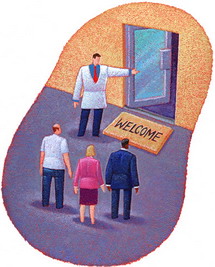 The cost? In the big picture, the cost is not even a consideration. Your investment now is less than you can imagine, as your facilities grow, expand, and thrive. Besides:
The cost? In the big picture, the cost is not even a consideration. Your investment now is less than you can imagine, as your facilities grow, expand, and thrive. Besides: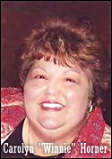 As my tenure began in this difficult environment, a few people stepped forward who “got it.”
As my tenure began in this difficult environment, a few people stepped forward who “got it.” 